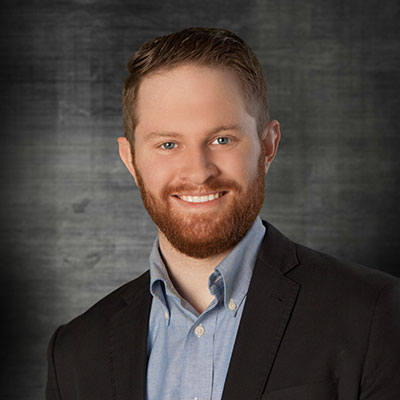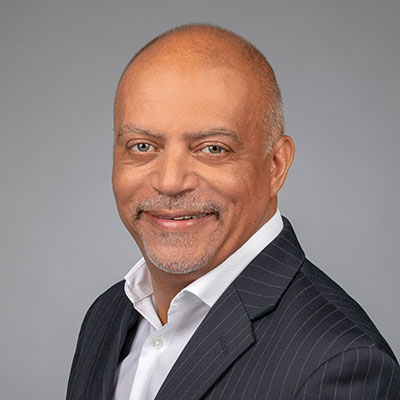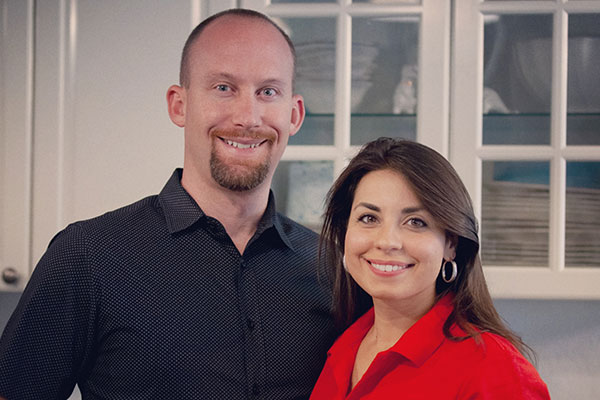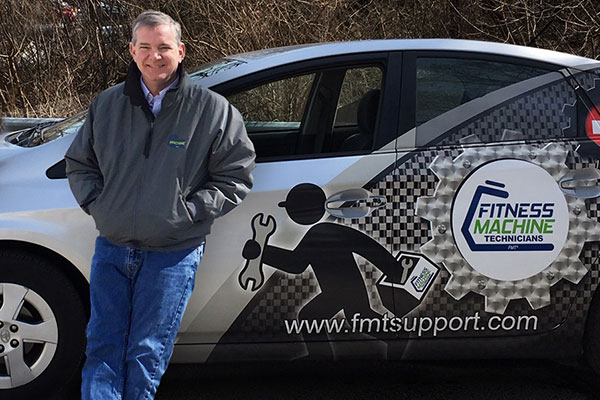July 2019: Featured Entrepreneur
Featured Entrepreneur
by Rochelle Miller
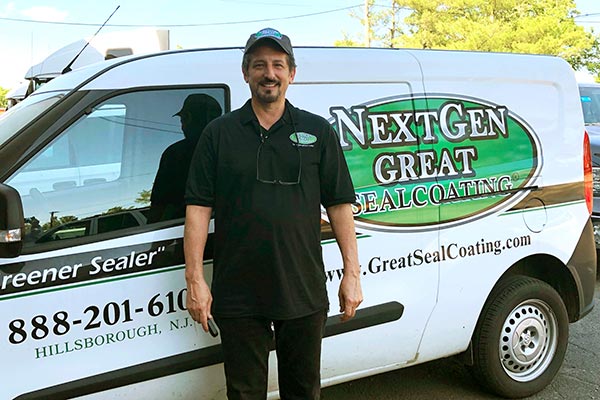
Tim Smeltz
NextGen Great Sealcoating
Grueling. That’s how Tim Smeltz characterizes the 29 years he spent trekking into Manhattan from his New Jersey home to work as a chef. “The restaurant business is really tough. You have many bosses, the markup is small, and the failure rate is extraordinarily high,” he says.
Smeltz escaped the pressures of the food industry and his killer commute by creating a successful business from the comforts of his suburban house—his driveway, to be exact.
Recognizing a need
As a homeowner, Smeltz noticed that his driveway lacked curb appeal because the dark asphalt was cracking and faded, even turning white in spots. He wanted to fix it but was surprised to learn that only one business in his area offered seal-coating, a relatively inexpensive solution that prevents water from seeping through the asphalt. “They didn’t even return my calls,” he says.
That’s when he began researching how to do the job himself.
Smeltz established NextGen Great Sealcoating in 2005 and has been growing the business ever since. Five years after launching, he partnered to develop an environmentally-friendly formula that contains no cancer-causing ingredients, an advantage his product has over most on the market.
In 2018, NextGen Great Sealcoating began franchising across five states spanning the Mid-Atlantic region. Recurring revenue is a huge attraction for investors. “We recommend having [sealcoating] done every two to four years,” Smeltz says. “And we continue to expand our customer base through referrals,” he adds.
Other advantages for franchisees include a central call center that routes customers to the franchisee in their area by ZIP Code and gives price quotes. “We offer huge territories compared to most franchises. We start at two counties and go from there,” Smeltz says.
Finding solutions
As an outdoor business, winter months could mean downtime for NextGen franchisees. But Smeltz has found an innovative solution: He offers his own customers a seasonal service to design and install Christmas decorations to keep revenue flowing, and franchisees can do something on the side if they wish.
“In owning my own business, I have the freedom to make all of the decisions, knowing that I really only have one boss— my customer. For the right people, it’s the best way, which is why we’re looking for like-minded individuals to join us in our franchise.”
For more information, call NextGen Great Sealcoating at 888-201-6109, or visit the company website at www.greatsealcoating.com.
Share this story
Featured Entrepreneur
by Rochelle Miller

Tim Smeltz
NextGen Great Sealcoating
Grueling. That’s how Tim Smeltz characterizes the 29 years he spent trekking into Manhattan from his New Jersey home to work as a chef. “The restaurant business is really tough. You have many bosses, the markup is small, and the failure rate is extraordinarily high,” he says.
Smeltz escaped the pressures of the food industry and his killer commute by creating a successful business from the comforts of his suburban house—his driveway, to be exact.
Recognizing a need
As a homeowner, Smeltz noticed that his driveway lacked curb appeal because the dark asphalt was cracking and faded, even turning white in spots. He wanted to fix it but was surprised to learn that only one business in his area offered seal-coating, a relatively inexpensive solution that prevents water from seeping through the asphalt. “They didn’t even return my calls,” he says.
That’s when he began researching how to do the job himself.
Smeltz established NextGen Great Sealcoating in 2005 and has been growing the business ever since. Five years after launching, he partnered to develop an environmentally-friendly formula that contains no cancer-causing ingredients, an advantage his product has over most on the market.
In 2018, NextGen Great Sealcoating began franchising across five states spanning the Mid-Atlantic region. Recurring revenue is a huge attraction for investors. “We recommend having [sealcoating] done every two to four years,” Smeltz says. “And we continue to expand our customer base through referrals,” he adds.
Other advantages for franchisees include a central call center that routes customers to the franchisee in their area by ZIP Code and gives price quotes. “We offer huge territories compared to most franchises. We start at two counties and go from there,” Smeltz says.
Finding solutions
As an outdoor business, winter months could mean downtime for NextGen franchisees. But Smeltz has found an innovative solution: He offers his own customers a seasonal service to design and install Christmas decorations to keep revenue flowing, and franchisees can do something on the side if they wish.
“In owning my own business, I have the freedom to make all of the decisions, knowing that I really only have one boss— my customer. For the right people, it’s the best way, which is why we’re looking for like-minded individuals to join us in our franchise.”
For more information, call NextGen Great Sealcoating at 888-201-6109, or visit the company website at www.greatsealcoating.com.
Share this story




